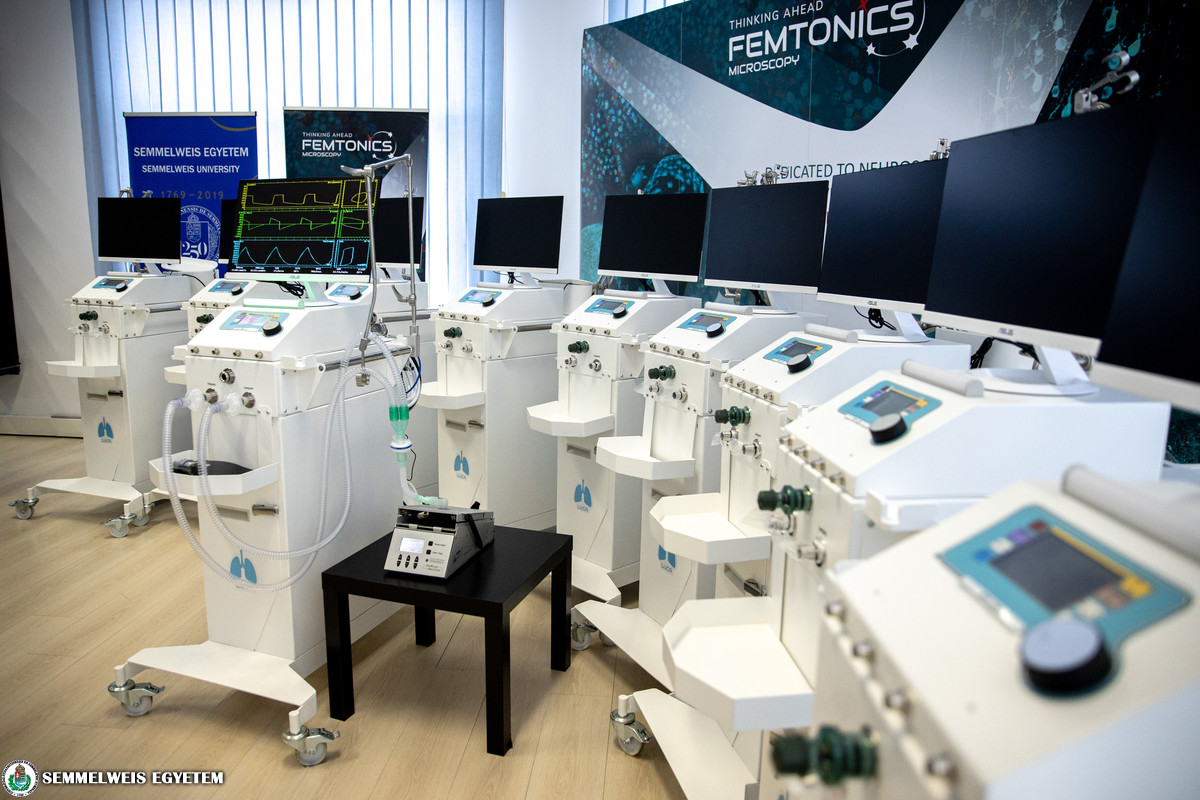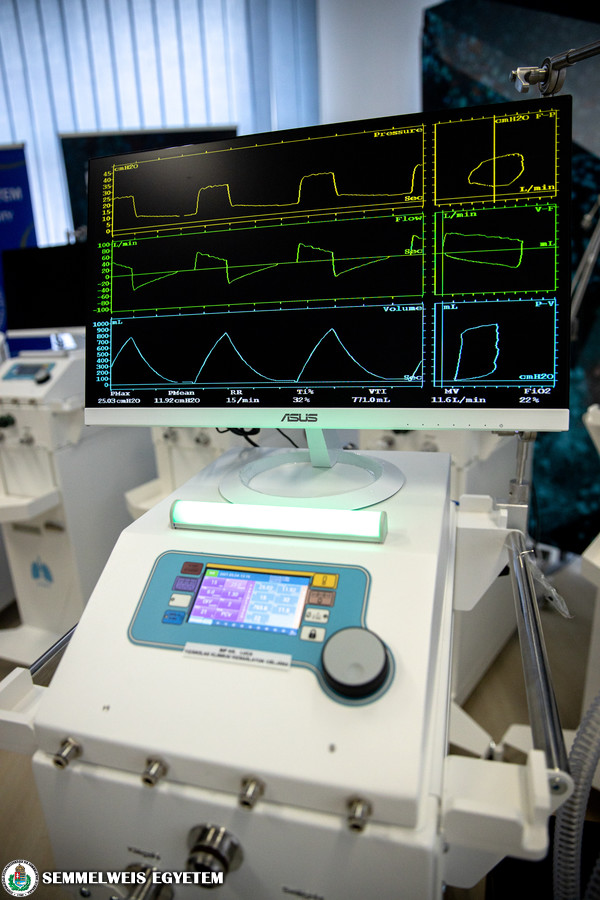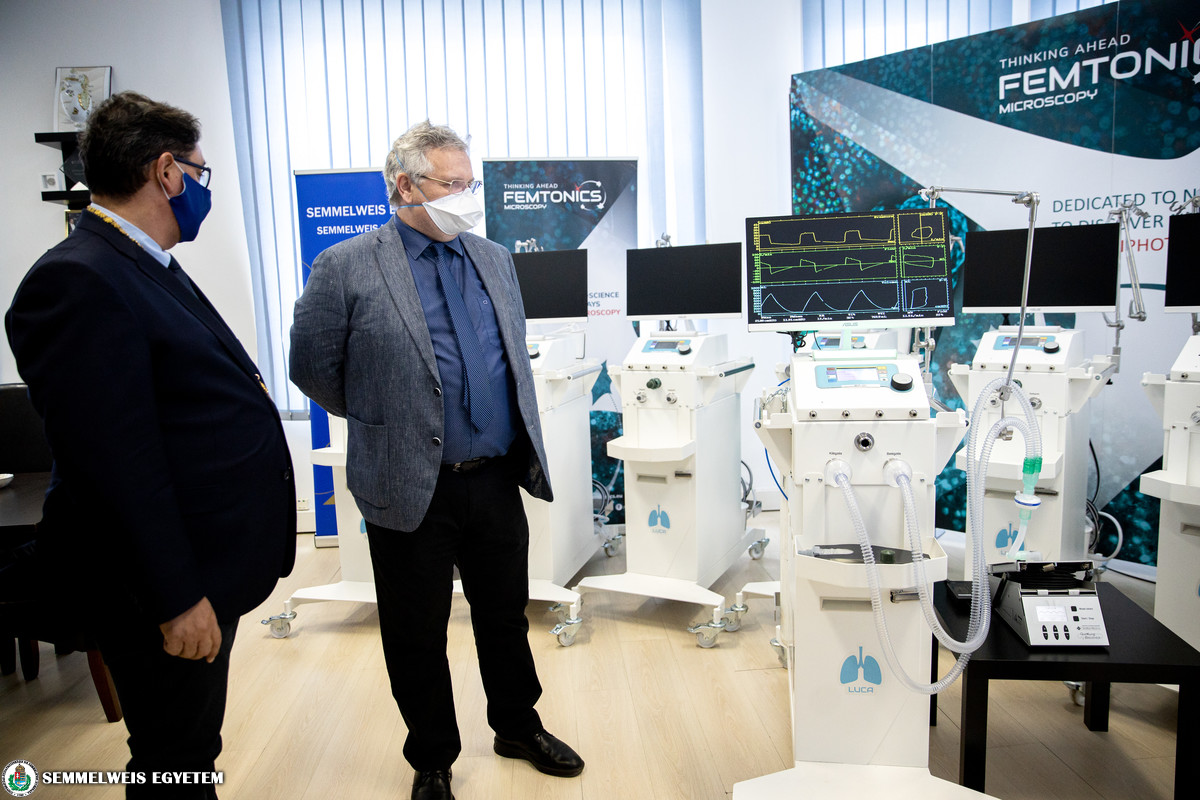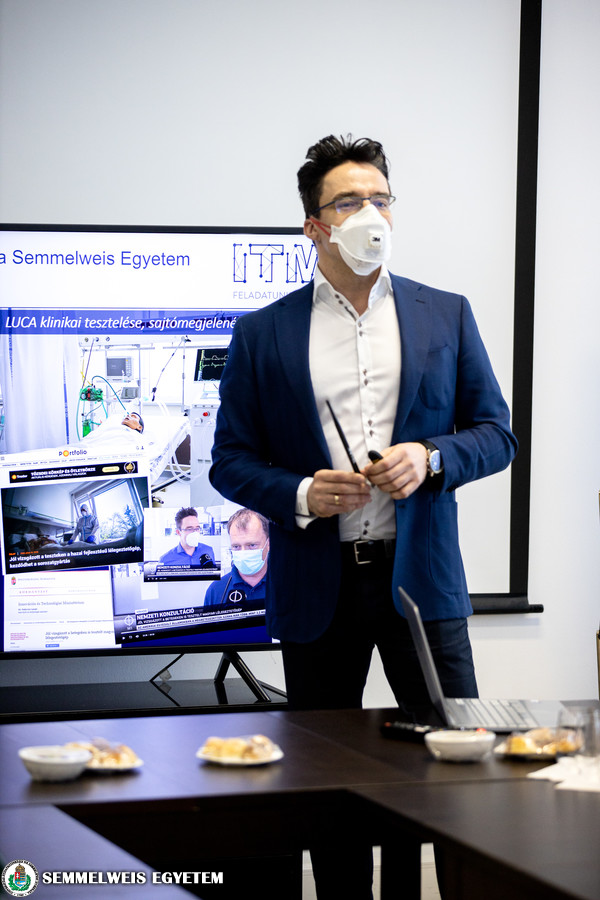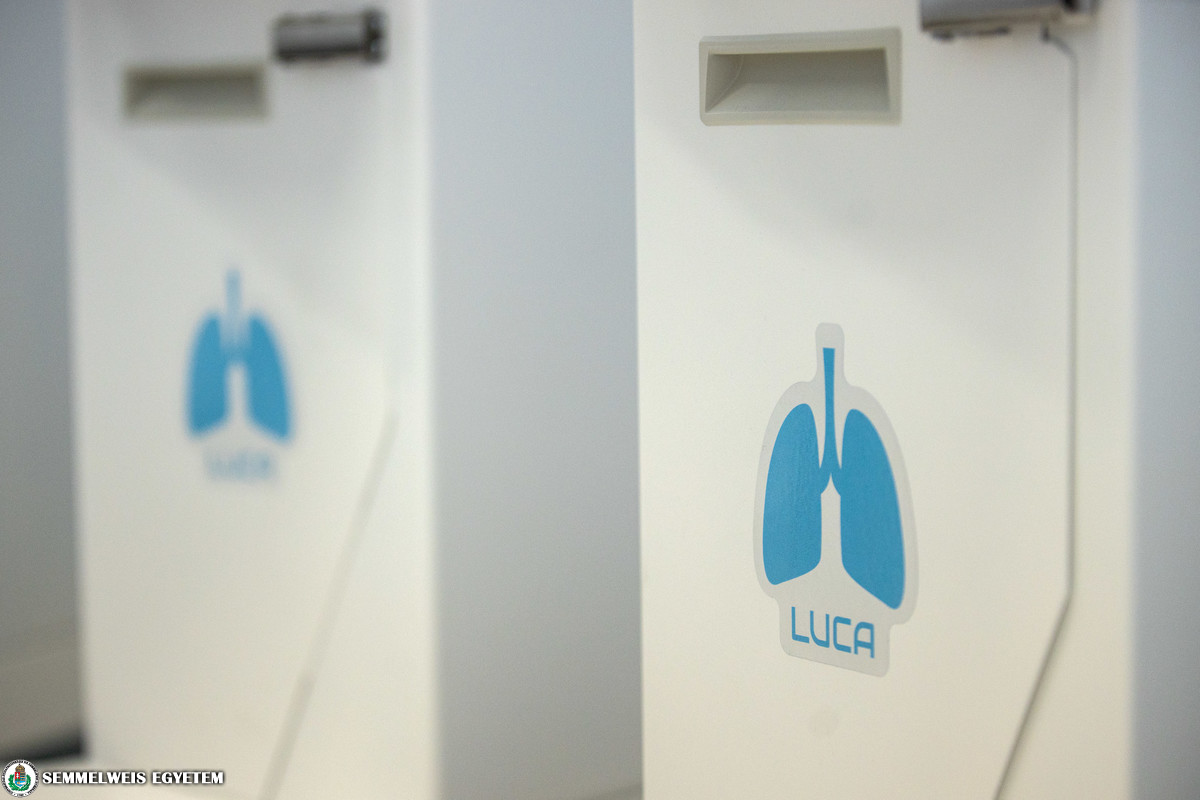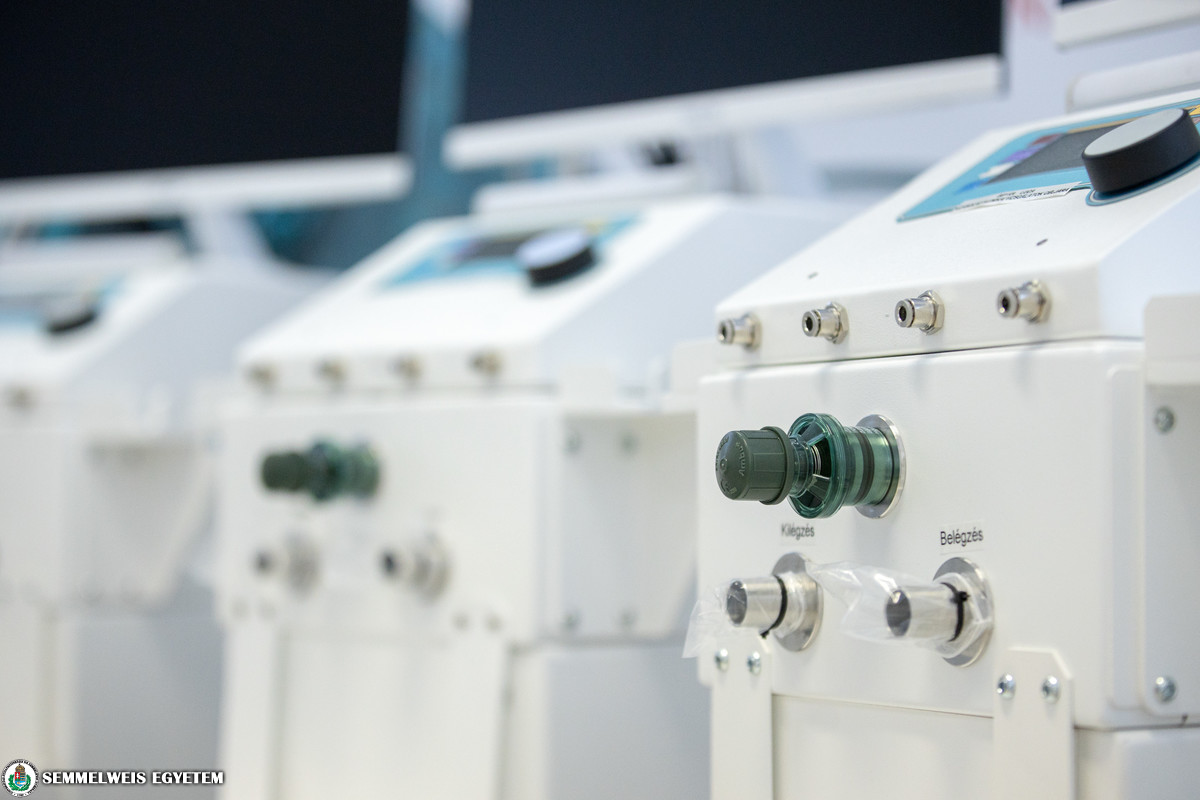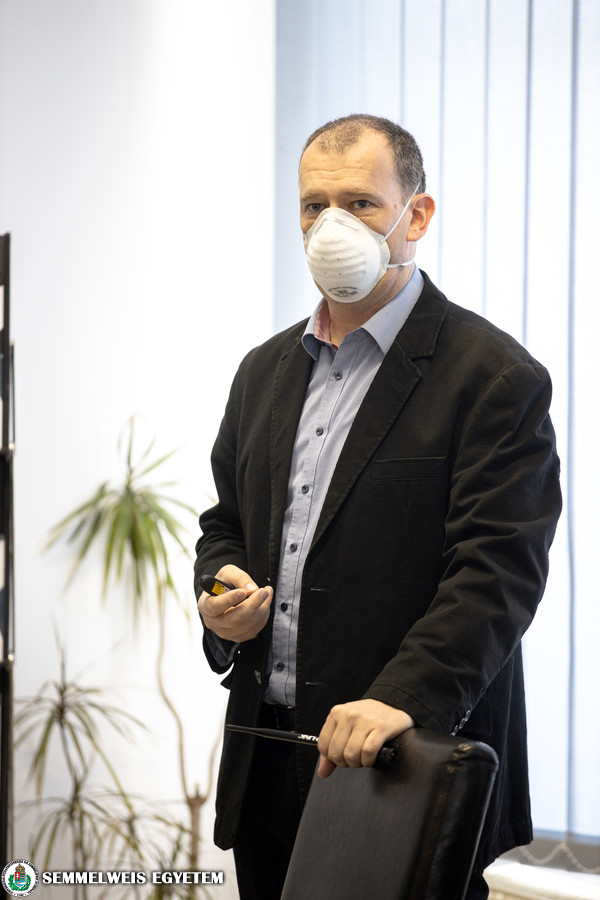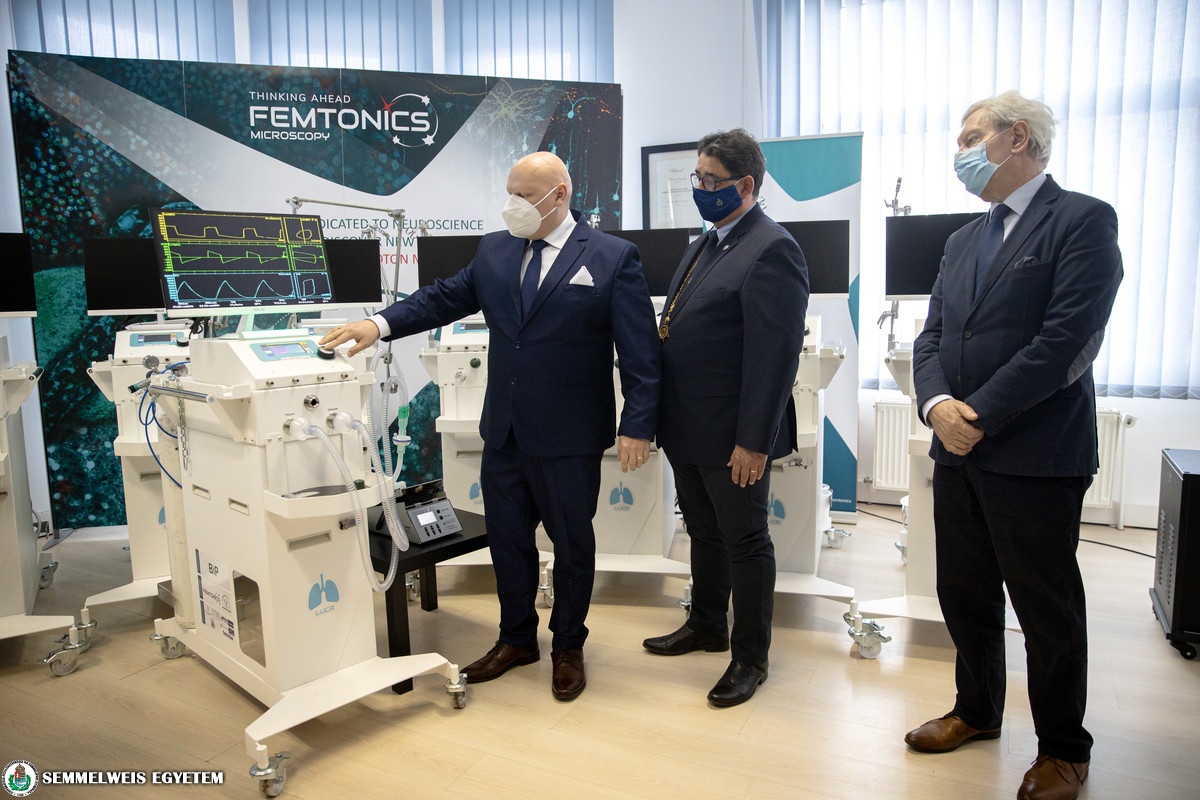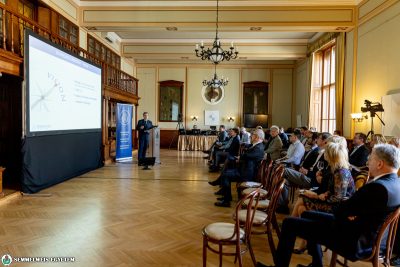The first 10 prototypes of the new generation ventilators developed in Hungary have been handed over to the Department of Anesthesiology and Intensive Therapy at Semmelweis University, the largest respiratory center in the country. The equipment was developed by Femtonics Kft. on the basis of the university’s medical guidelines, in cooperation with several domestic partners, funded by the Ministry for Innovation and Technology. The modern equipment will be used in clinical research, to enable the development of personalized and disease-specific ventilation methods, and to open up new perspectives in the field of ventilation therapy.
The first 10 prototypes of the new generation ventilators developed in Hungary were handed over to the Department of Anesthesiology and Intensive Therapy at Semmelweis University on 4 March, 2021, in the presence of Dr. Béla Merkely, Rector and Dr. József Bódis, State Secretary for Higher Education, Innovation and Vocational Training at the Ministry for Innovation and Technology. The equipment was developed by Femtonics Kft. on the basis of the university’s medical guidelines and clinical know-how, funded by the Ministry for Innovation and Technology.
The devices, developed according to a strict system of standards for medical devices, have performed successfully in clinical trials at Semmelweis University from a scientific, medical and ethical point of view. The prototypes used in the treatment of both unconscious and conscious patients supported spontaneous breathing well, responding properly to events that occurred during ventilation (such as coughing). The equipment will be used in clinical research.
The university strongly supports any development that results in outcomes that can be used directly by the patient bed. According to Dr. Béla Merkely, an important factor in the success of the development was the fact that the three-fold mission of Semmelweis University is education, research-innovation and a high level of clinical patient care.
“The department is the largest respiratory center in the country, and the colleagues who work here have a unique knowledge in the care of ventilators and patients with respiratory failure. That is why the Department of Anesthesiology and Intensive Therapy has been able to work with partners to create a device of this standard, and further improvements are expected at the department in the future related to the new equipment.”, emphasized Dr. János Gál, Professor, Head of the Department of Anesthesiology and Intensive Therapy.
“At the Department of Anesthesiology and Intensive Therapy, the goal is to develop a ventilator that can be parameterized for a person and a type of disease with the help of prototypes, based on international experience, which also uses special ventilation methods and opens new perspectives in the field of ventilation therapy”, said Dr. András Lorx, Associate Professor, the medical leader of the development.
He also said that no ventilators have been manufactured in Hungary for many years, but the university and its domestic partners were able to produce prototypes within one year.
“The device is top quality, because special respiratory mechanics data can be uploaded, thus it is able to measure and monitor specific details of a patient’s respiratory system, allowing them to be adjusted to suit the patients or their condition. This is also a huge opportunity in clinical research and patient care, since previous ventilators did not have a similarly complex technology for monitoring the condition of patients”, pointed out Dr. András Lorx.
During the development, following the system of standards for medical devices, very strict requirements had to be met, but still a remarkable result was achieved in a very short time. The company’s chemical, electronics, software development and mechanical engineering departments have been involved in the development of the devices for a continuously increased number of hours.
“The presented devices meet more than 500 criteria in terms of oxygen- and biocompatibility, aerodynamics and pneumatics”, said Balázs Rózsa, the founding owner of Femtonics Kft.
Femtonics Kft. presents international scientific achievements in the field of neuroscience and brain research and represents a state-of-the-art technology in 3D two-photon laser microscopy.
The developers described a flow system designed according to the the principles of aerodynamics and pneumatics for which they developed an electronic circuit and control system, which intervenes a thousand times per second by sampling to enable a perfectly balanced respiratory cycle.
A key aspect in the development of the ventilator was to provide a modular platform, so that the innovative ideas and procedures available at Semmelweis University could be easily implemented in the equipment. The CEO emphasized that the cooperation between the company and the university was facilitated by many Hungarian companies: 77 Elektronika Kft., Linde Gáz Magyarország Zrt., Momert Zrt., Mould-Tech Mérnöki Iroda Kft., PCB Design Kft. and Tech-Con Hungária Kft. were also key partners in the Hungarian development. As the CEO highlighted, using the knowledge of Hungarian experts, not only has it become possible to create a high-quality ventilator, but a unique product using special procedures can be launched in the future, which can contribute to the more successful treatment of patients with respiratory failure.
With the funds of the Ministry for Innovation and Technology, approximately 30 R&D projects have been launched since the spring of 2020, which are being carried out with outstanding success on international level as well, and have already been partially completed. A significant part of the initiatives supported by the Ministry’s 3 billion HUF fund has been successfully helping Hungarian disease control during the epidemic for almost a year, typically in the form of epidemiological analyses examining the spread of the virus, or pharmaceutical and therapeutic developments and manufacturing projects.
“In response to the global challenge of the coronavirus, Hungarian experts quickly put world-class knowledge into actionto protect the lives and health of Hungarian people. Thanks to government resources and coordination, by reducing Hungary’s dependence on international resources, it has become able to self-sufficienctly provide masks and disinfectants, and a national vaccine factory is being built in Debrecen to produce coronavirus vaccines”, emphasized Dr. József Bódis, State Secretary for Higher Education, Innovation and Vocational Training.
Ádám Szabó
Photo: Attila Kovács – Semmelweis University
Translation: Katalin Illés-Romhányi
